15th Annual General Meeting (AGM) of the Intergovernmental Forum on Mining, Minerals, Metals and Sustainable Development (IGF)
Mining in a Changing Climate
7-10 October 2019 | Palais des Nations, Geneva, Switzerland
Summary Highlights: 7-10 October 2019
Highlights for Thursday, 10 October 2019
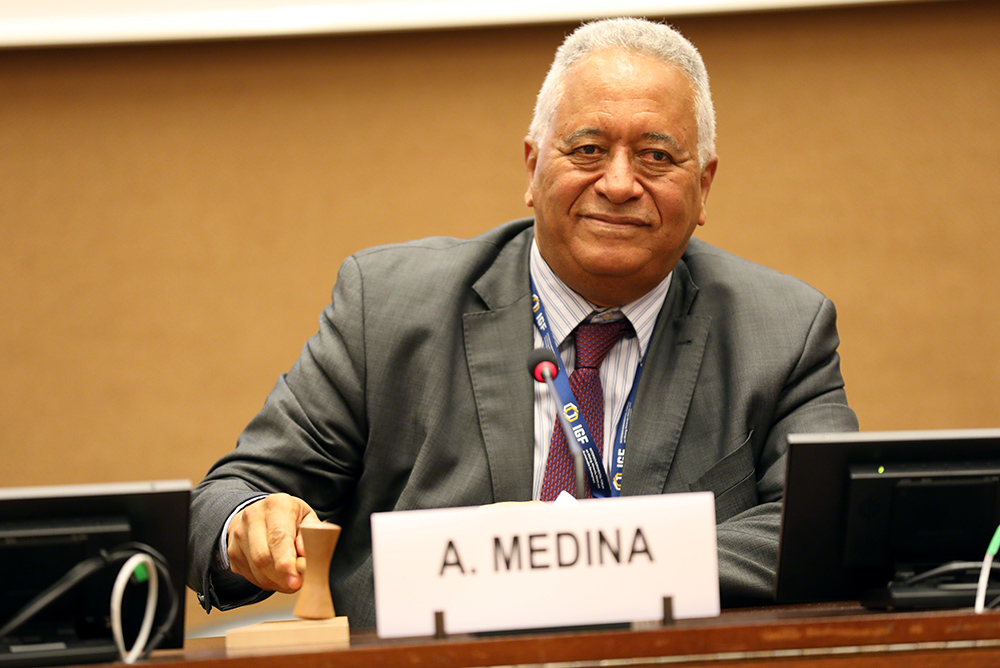
On the final day of the AGM, Council members met in the morning to elect a new Executive Committee. Delegates participated in future-oriented discussions about the changing nature of work, “green mines,” and changes to resource taxation spurred by the digital economy.
Delegates noted the current negotiations within the Organisation for Economic Co-operation and Development (OECD) Inclusive Framework on Base Erosion and Profit Shifting (BEPS), which could affect the tax revenue collected by mining countries.
Other topics addressed during the day included the need for reskilling workers in mining communities, and the promise of business opportunities in reprocessing of old mine tailings and restoration of ecosystems damaged by previous mining activities.
During lunchtime, Francophone African countries discussed Artisanal and Small-Scale Mining (ASM), and Latin American countries consulted on common challenges and commitments in implementing International Labour Organization (ILO) provisions for prior consultation with indigenous peoples.
In closing remarks, Yanchun Zhang, Chief, Commodity Policy Implementation and Outreach Section, UN Conference on Trade and Development (UNCTAD), expressed appreciation for the discussions, stating that UNCTAD had also benefited from the intellectual exchanges during the AGM, in view of the broad scope of mining impacts on development.
Greg Radford, Director, IGF, announced the new Executive Committee. Delegates welcomed incoming Chair Rokhaya Samba Diene, Senegal, and expressed appreciation to outgoing Chair Alexander Medina, Dominican Republic, for his work. Radford urged all to participate in the consultations on the draft guidance document for governments on environmental and social impact assessments (ESIAs), and announced that the Council had voted that the next guidance document to be produced will cover environmental management. Noting that this had also been the largest AGM to date, with more than 500 delegates registered, Radford announced that the 16th AGM will be held 9-13 November 2020.
The AGM closed at 5.07 pm. It will be followed by a one-day technical workshop on Friday.
IISD Reporting Services, through its ENB+ meeting coverage, has provided daily digital coverage, daily reports, and a summary report from the 2019 AGM. The summary report is available in HTML and PDF.
Photos by IISD/ENB | Mike Muzurakis
For photo reprint permissions, please follow instructions at our Attribution Regulations for Meeting Photo Usage Page
+ Visit the web coverage for Thursday, 10 October 2019
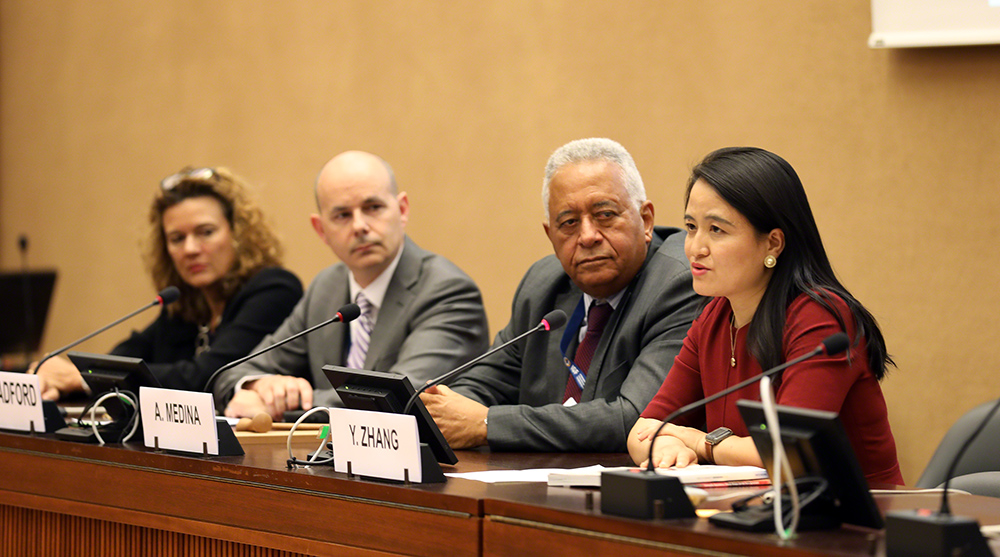
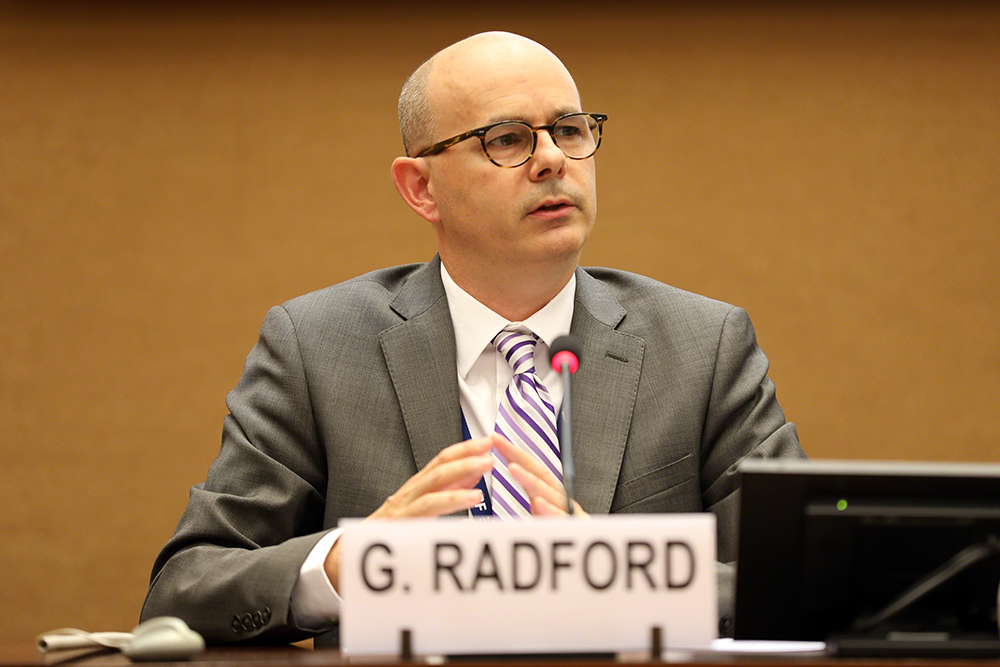
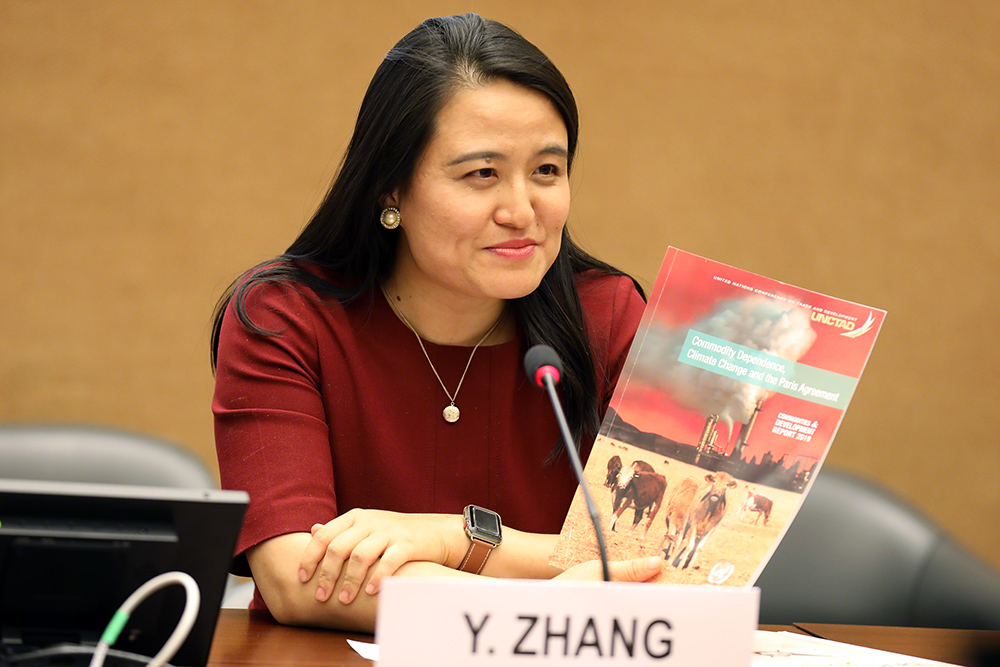
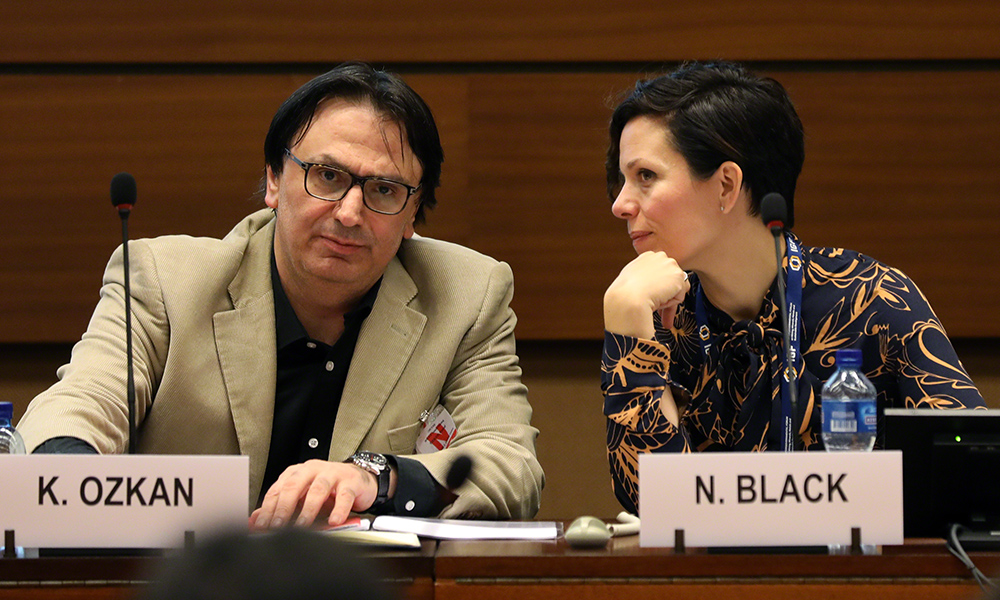
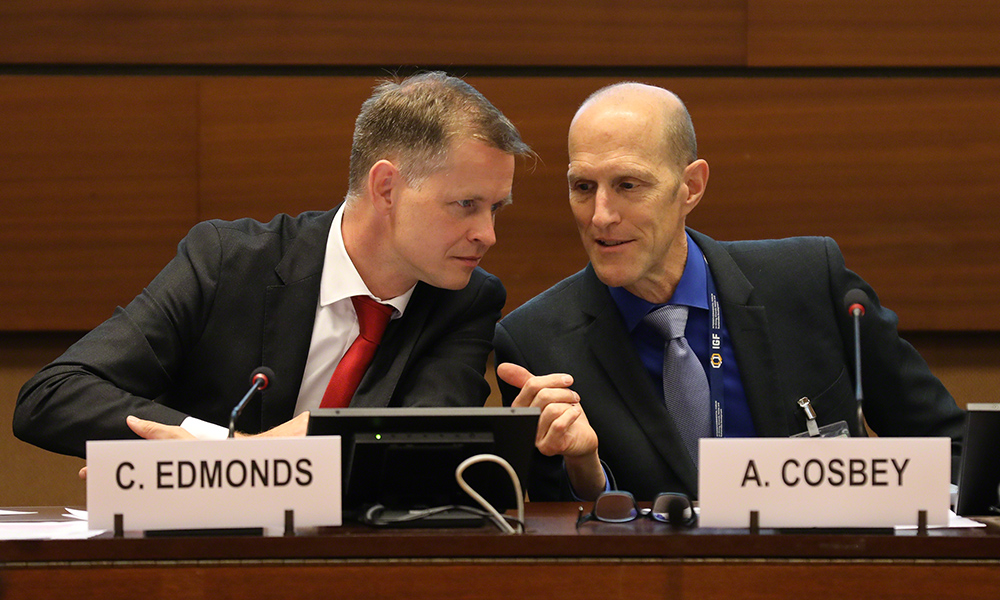
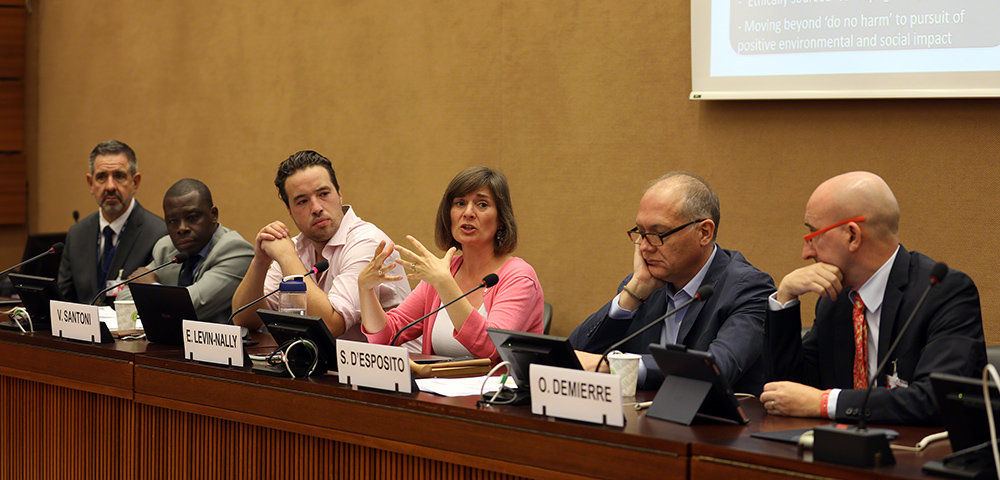

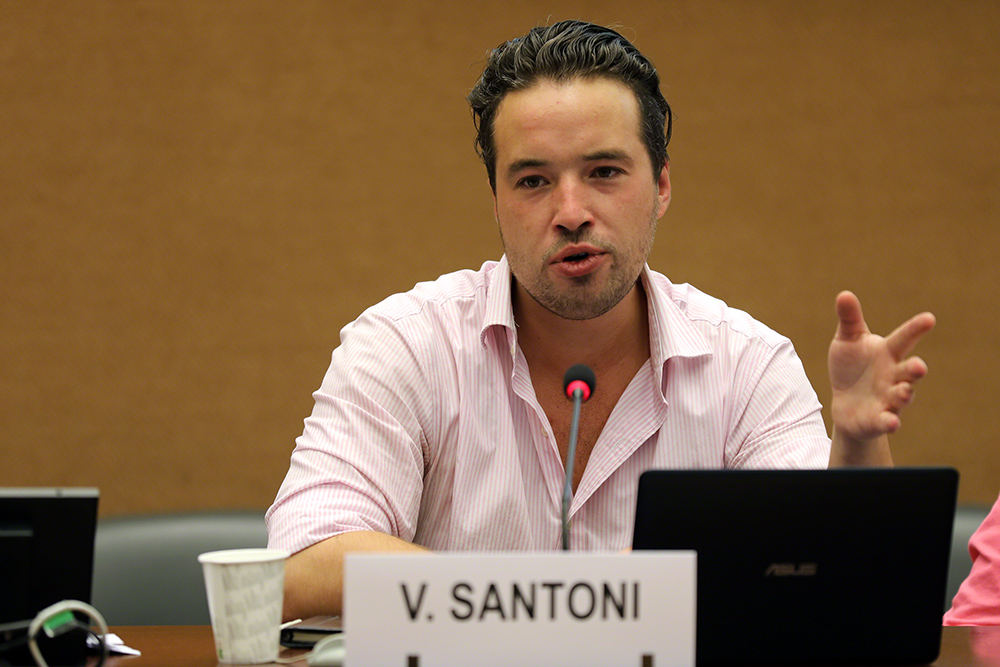
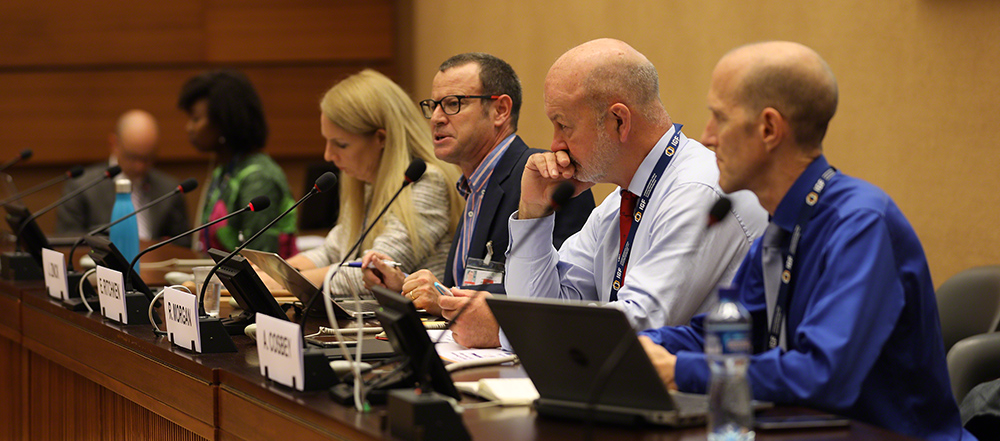
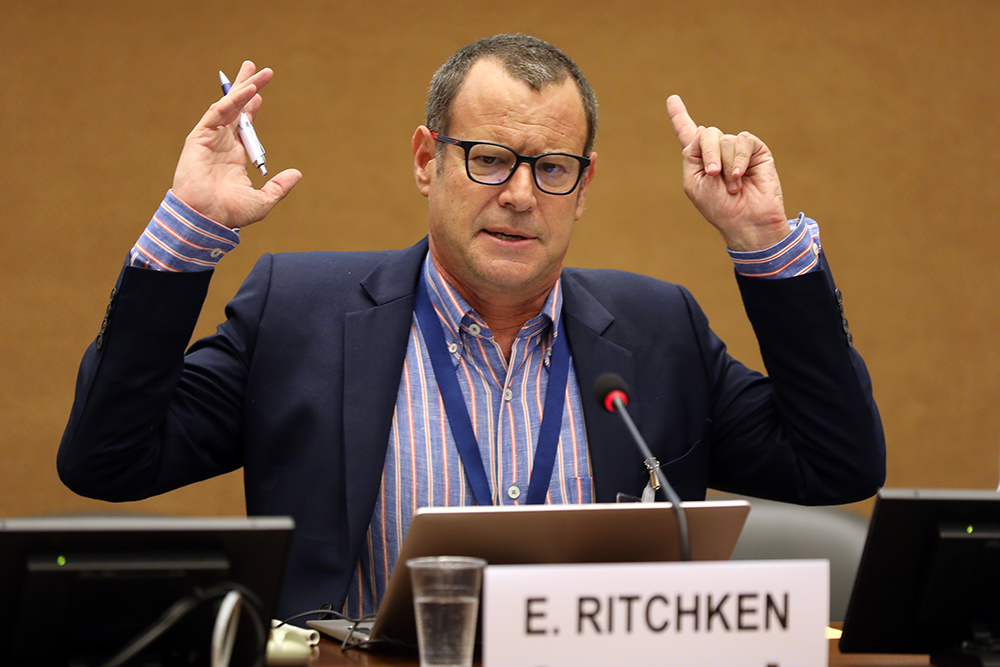
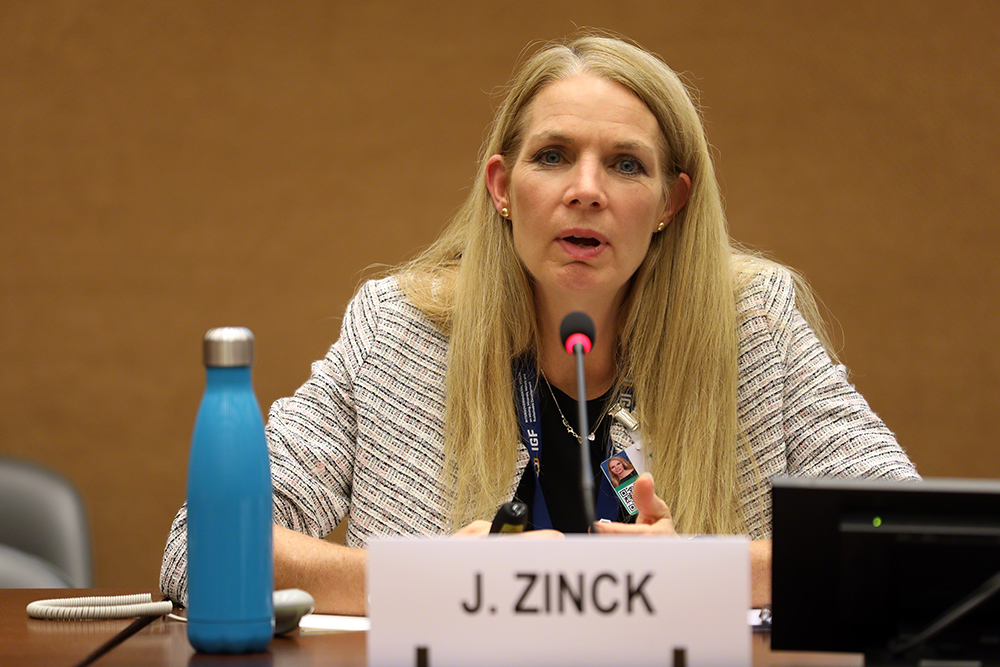
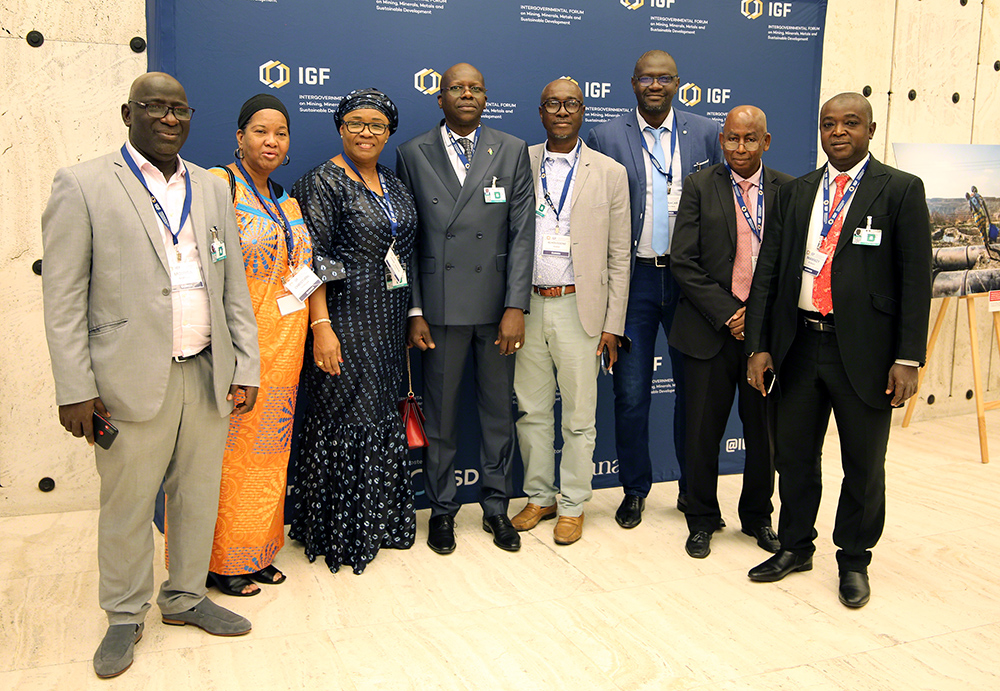
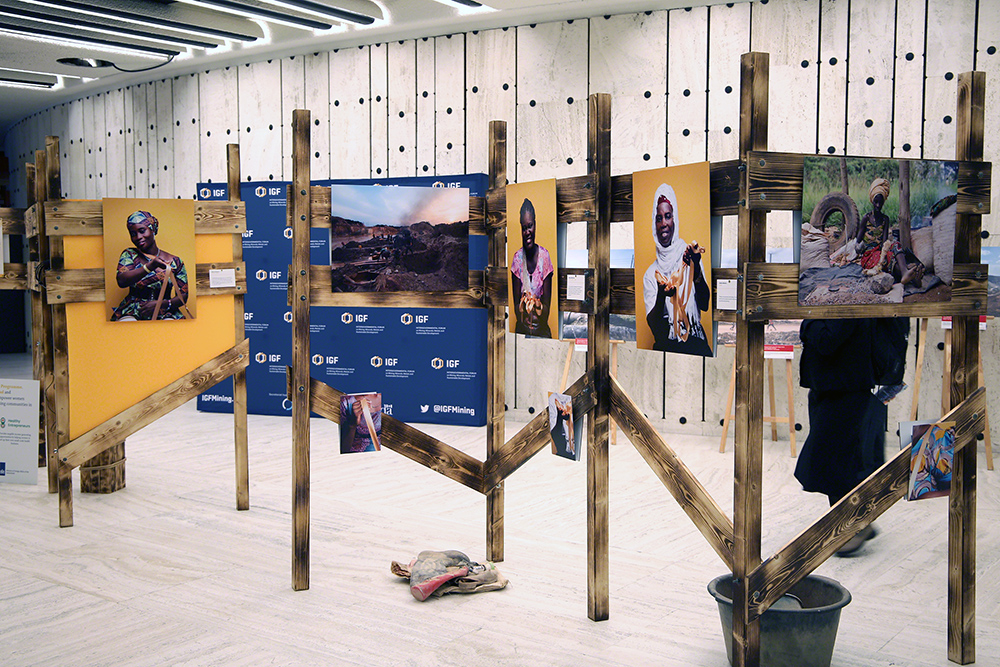
Highlights for Wednesday, 9 October 2019
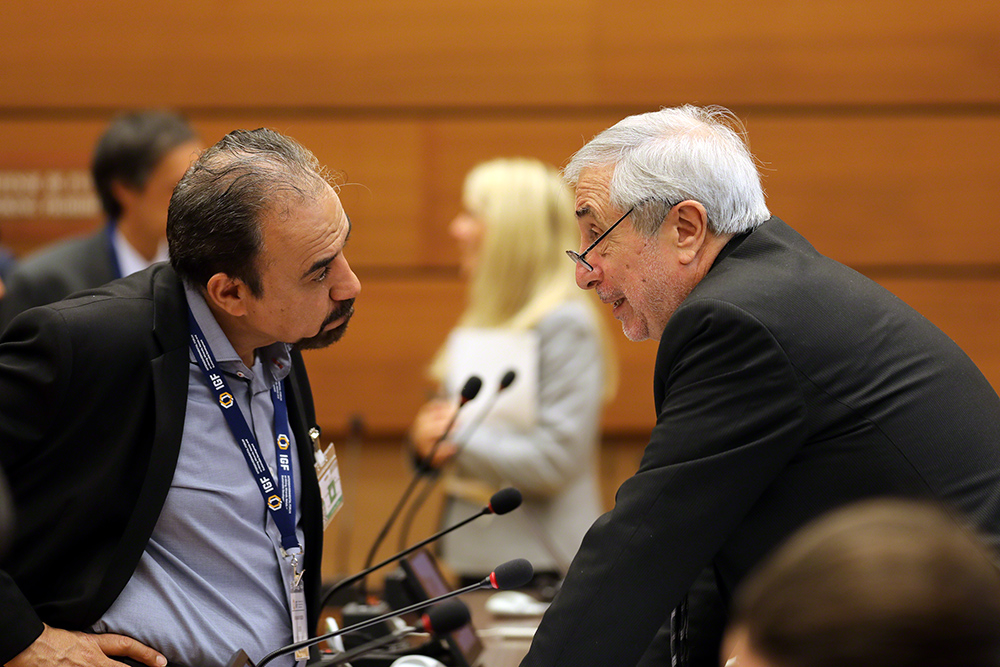
Delegates to the AGM attended panel sessions throughout the day, where they shared country strategies and examples of good practice on a range of issues, including low-carbon minerals, post-mining transitions, and support for economic and social transition in coal areas. The World Bank presented its Climate-Smart Mining Programme, and the Organisation for Economic Co-Operation and Development (OECD) introduced the European Partnership for Responsible Minerals (EPRM), which seeks to increase the benefits to local communities in conflict-affected and high-risk areas.
Several speakers noted the pressures on resource-rich countries from the increased global demand for minerals and metals used in electric vehicles. They anticipated that the increased demand for lithium, while providing an opportunity for resource-rich countries, also poses challenges including managing expectations of social benefits, coping with price volatility, and assuaging trade tensions between producer and consumer countries.
At lunchtime, the OECD presented its Guiding Principles for Durable Extractive Contracts, and the Geological Survey of Ireland presented its Tellus Programme, an ambitious mapping initiative that provides an environmental baseline of the country.
The day’s highlights included small group discussions about steps that governments and companies can take to promote gender equality in the mining sector. Delegates also shared with each other concrete mechanisms for balancing economic, environmental and social interests when planning for mine closure.
Towards the close of the day, delegates took part in discussions about the future of mining, and heard a report-back from the Global Tailings Review, which is seeking to develop a global standard for management of mine tailings, to avoid future disasters such as the collapse of the Brumadinho tailings dam in Brazil earlier in the year.
+ Visit the web coverage for Wednesday, 9 October 2019
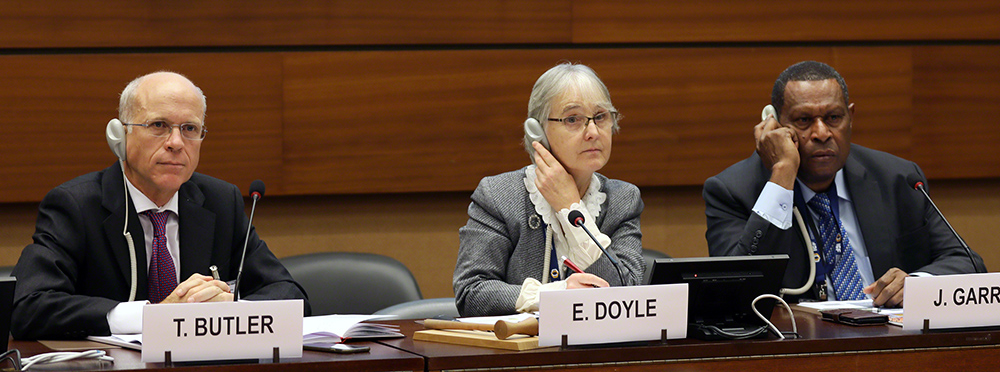
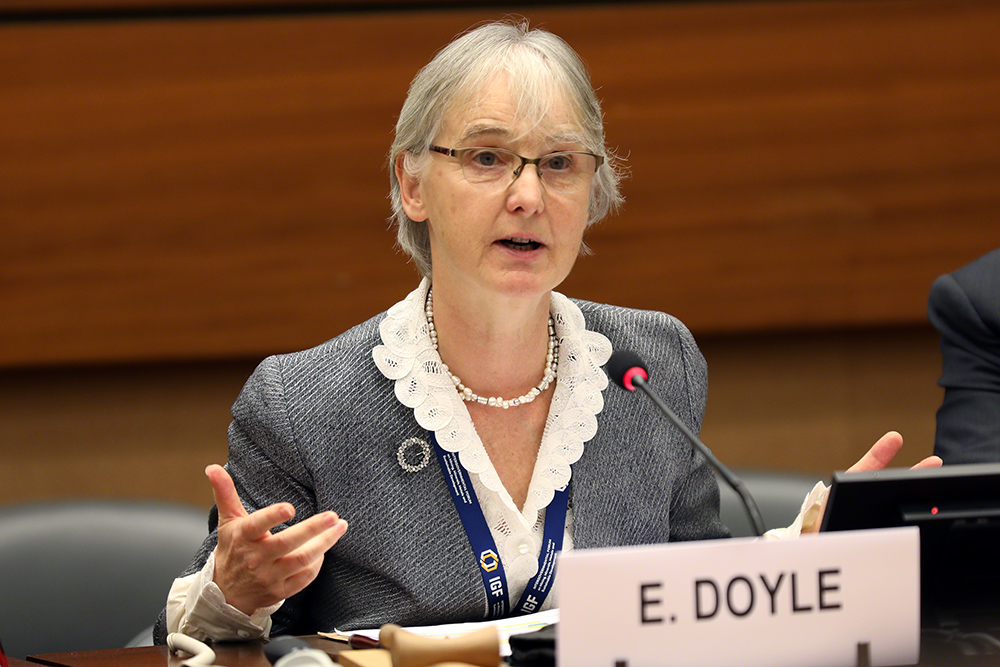
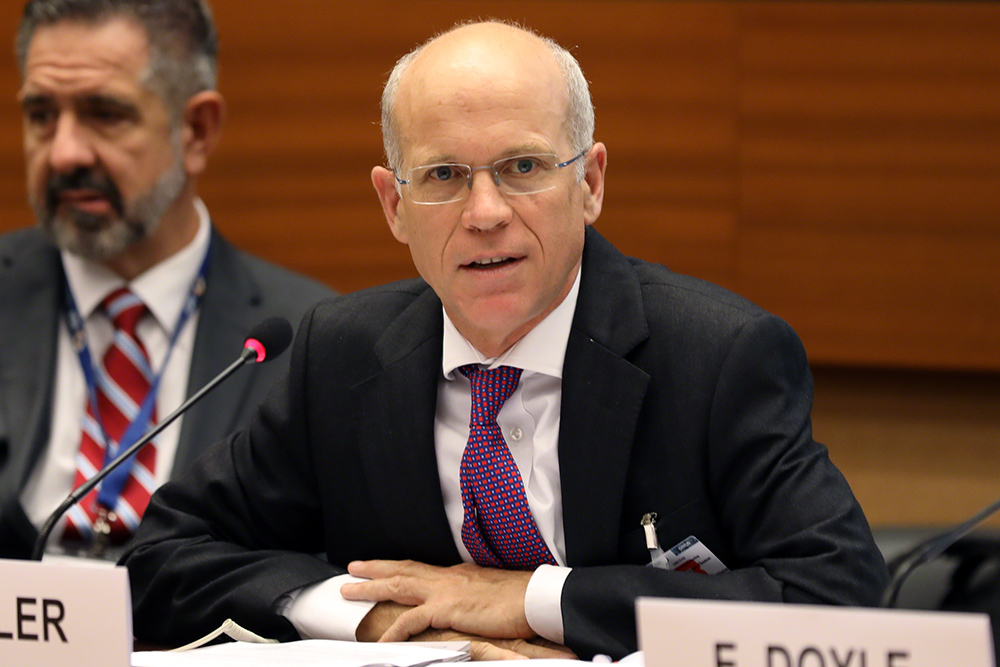

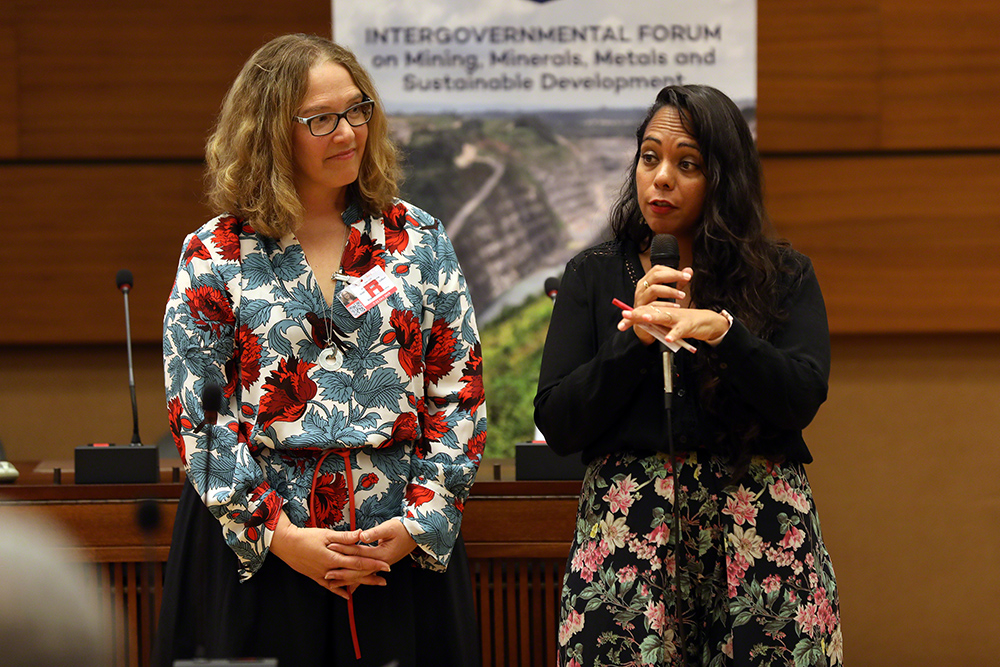
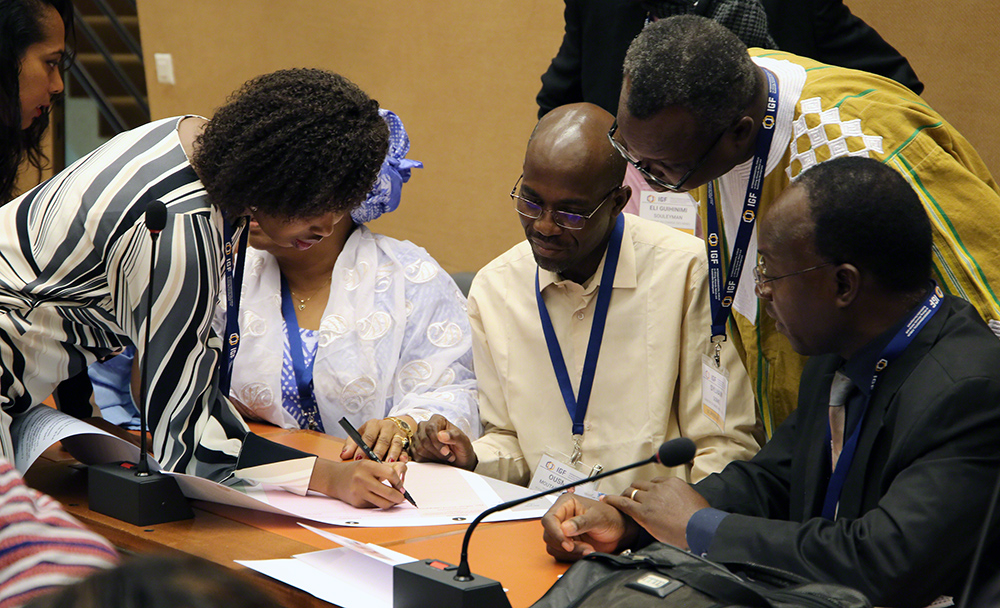
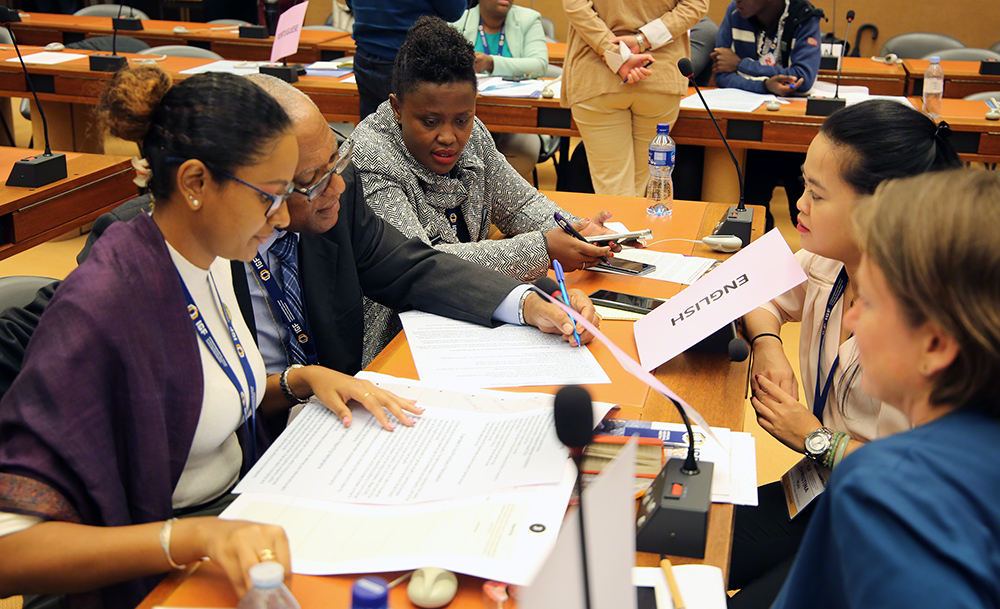
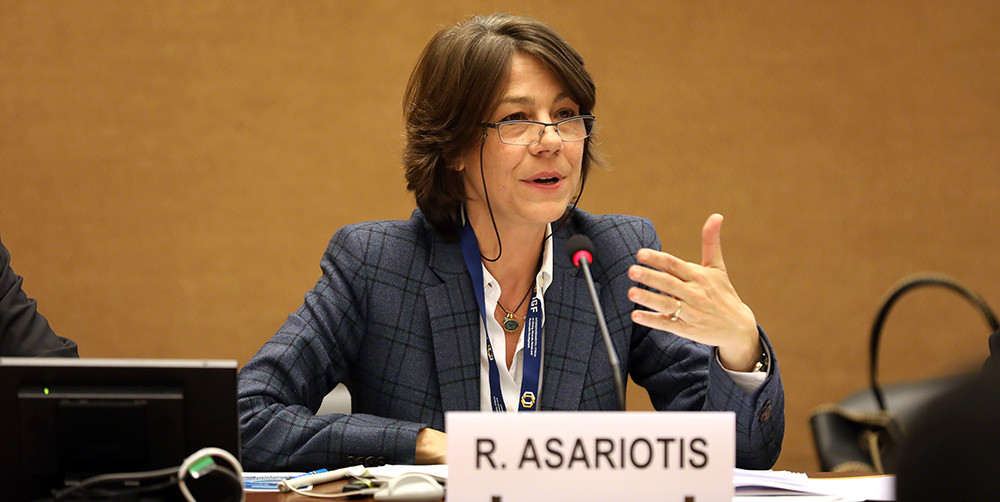
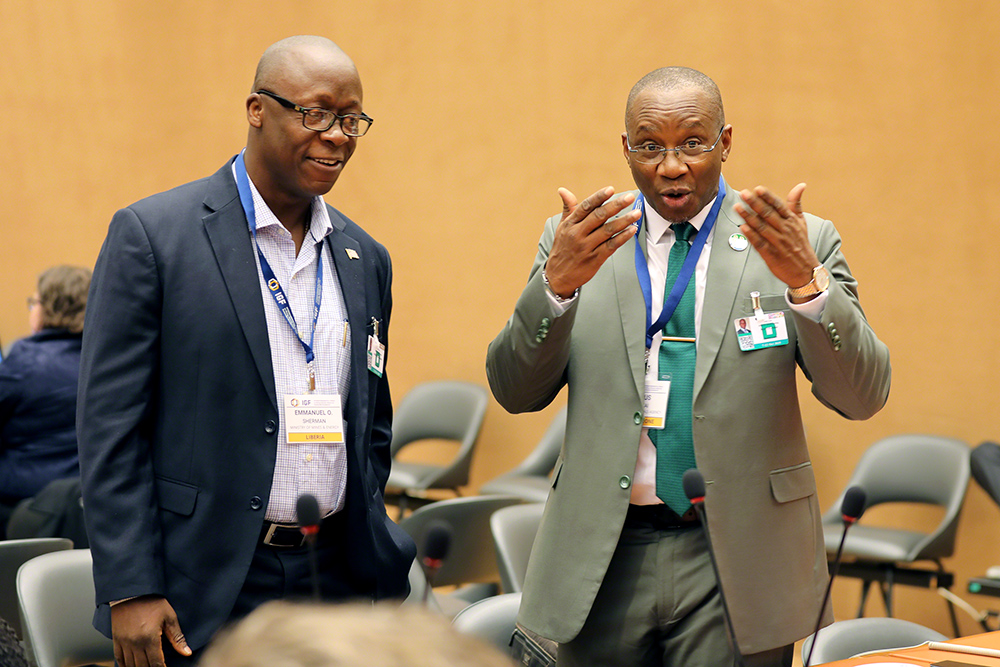
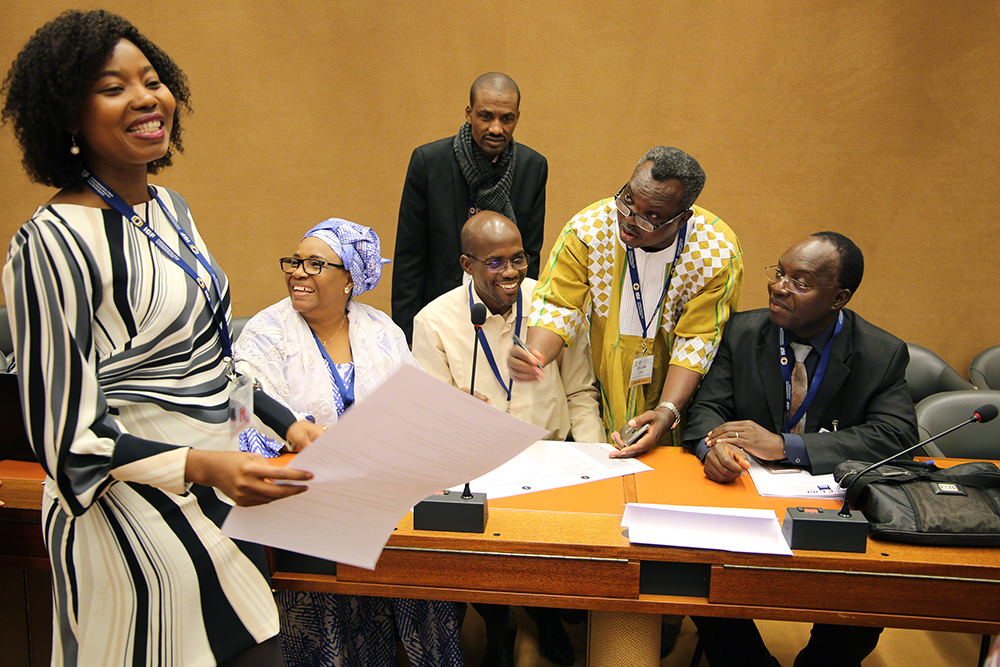
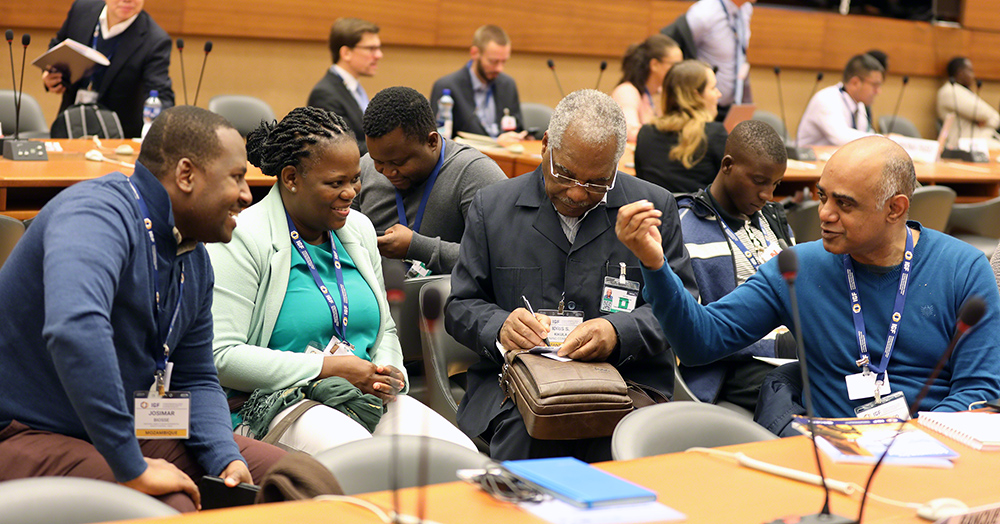
Highlights for Tuesday, 8 October 2019
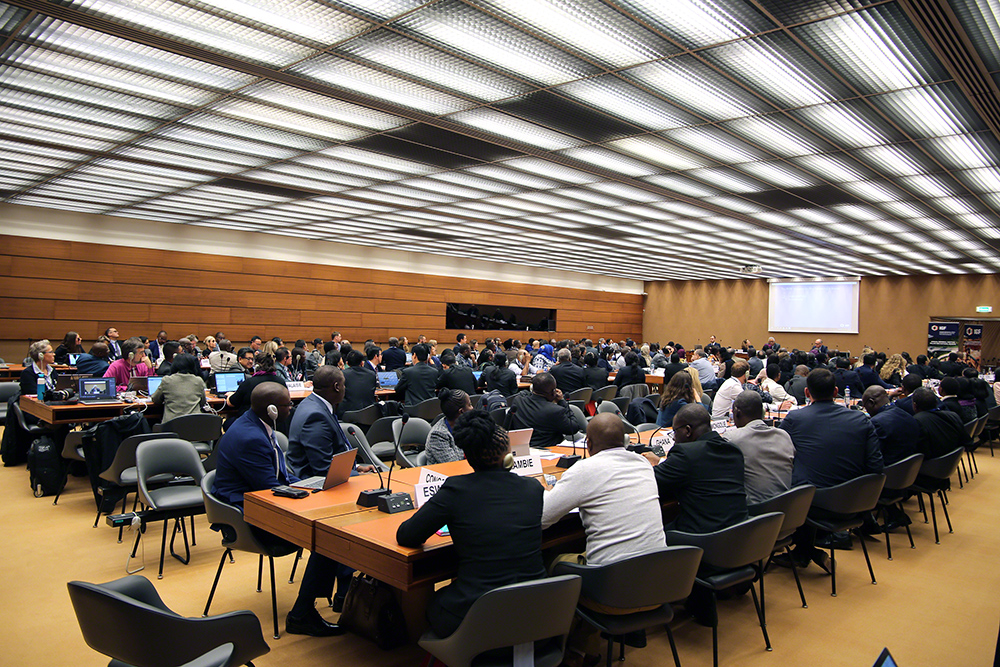
The 15th Annual General Meeting (AGM) of the Intergovernmental Forum on Mining, Minerals, Metals and Sustainable Development (IGF) opened today at the Palais des Nations in Geneva, Switzerland, on the theme of “Mining in a Changing Climate.”
In opening remarks, Isabelle Durant, Deputy Secretary-General, UN Conference on Trade and Development (UNCTAD), underscored the effects of mining on climate, its impacts on the environment and local communities, and its role in trade and sustainable development. Several speakers drew attention to the huge increase in global demand for minerals used in renewable energy technologies, and the need to plan for climate risk in mining operations.
Speakers and participants highlighted the role of innovation, data, standards and certification in promoting sustainability and resilience of the mining sector, noting the urgent need for action.
Government officials and mining company representatives presented examples of “climate-smart” initiatives, and shared examples of strategies to boost the use of renewable energy in mitigating greenhouse gas emissions (GHGs). They also discussed steps to strengthen environmental and social impact assessment (ESIA), and to formalize the artisanal and small-scale mining (ASM) sector. Discussions of the latter included a presentation of the World Bank DELVE database project on ASM and interactive “marketplace presentations” highlighting actions by several African and Latin American countries.
At lunchtime, delegates took part in an interactive session on gender-responsive human rights, which considered the need for due diligence in the mineral supply chain. In the evening, they attended a reception hosted by the World Bank.
+ Visit the web coverage for Tuesday, 8 October 2019
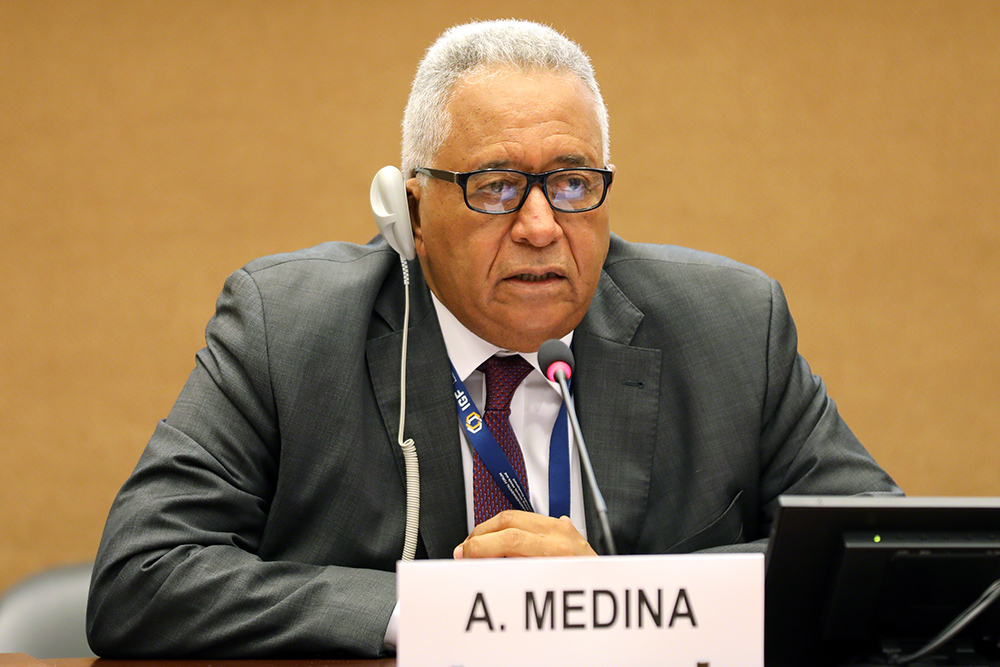
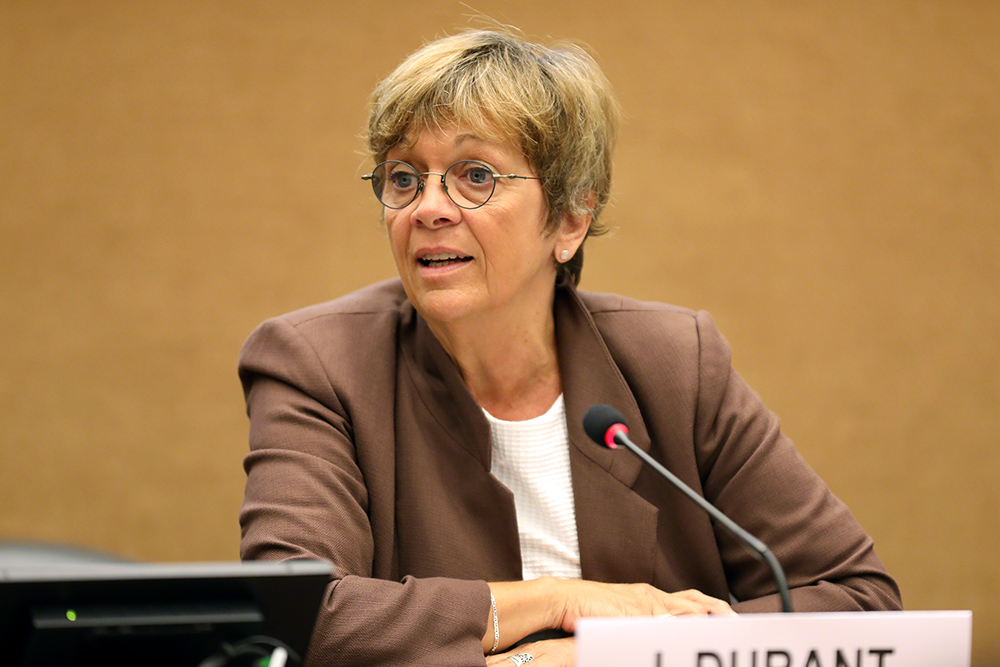
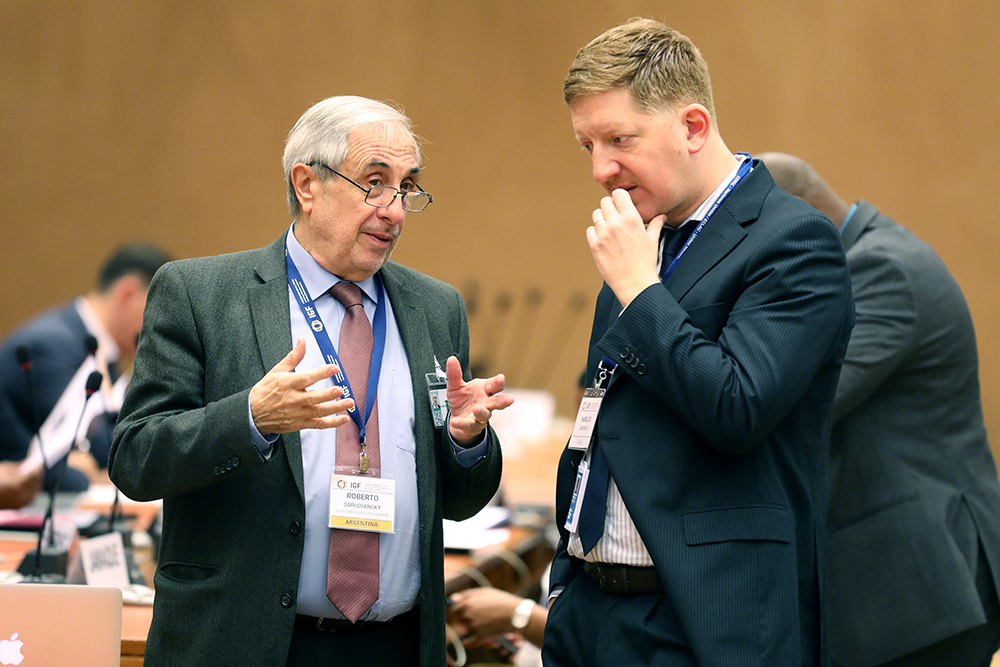
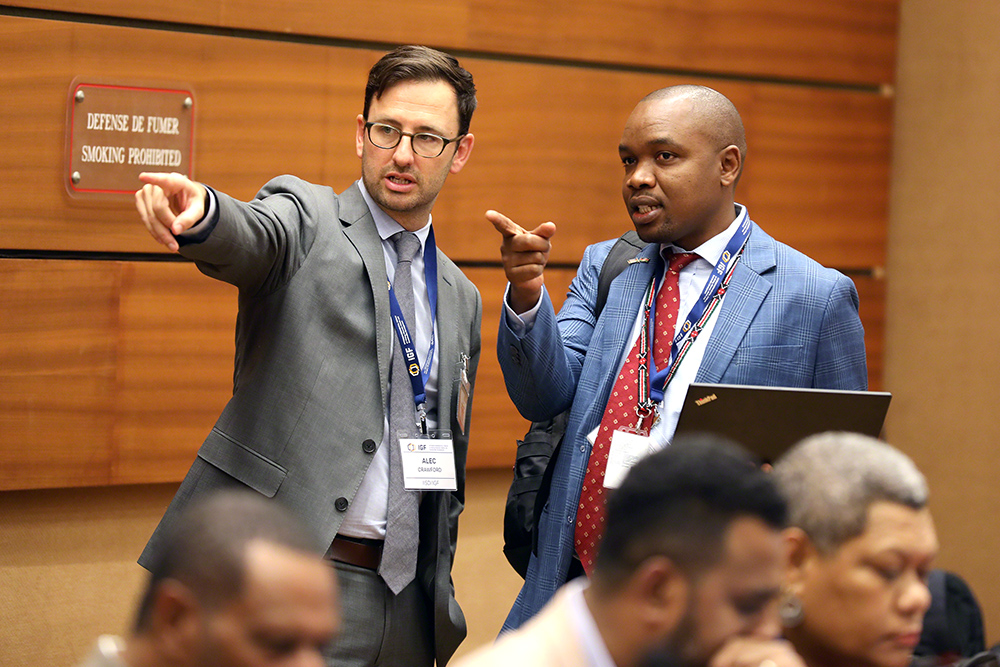
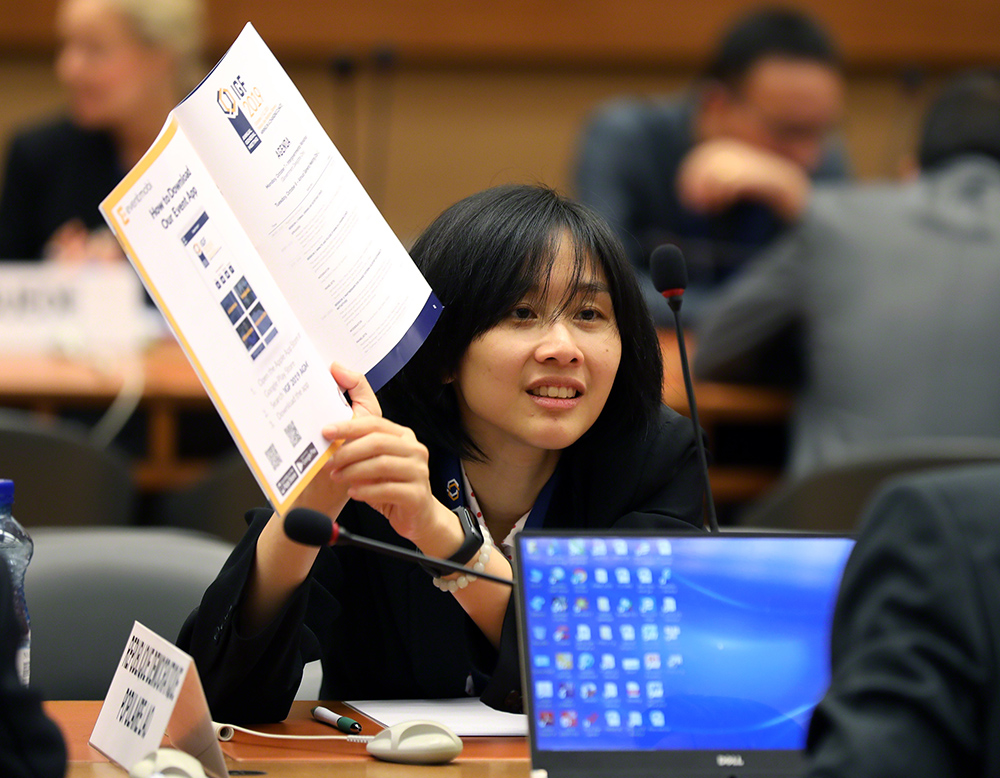
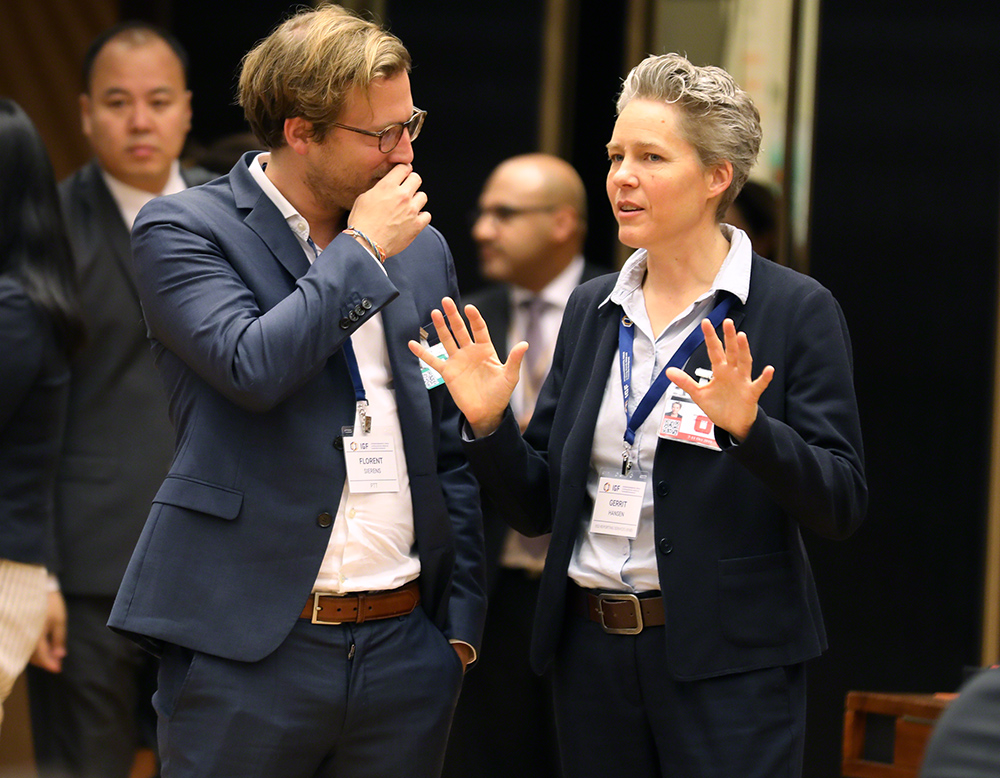
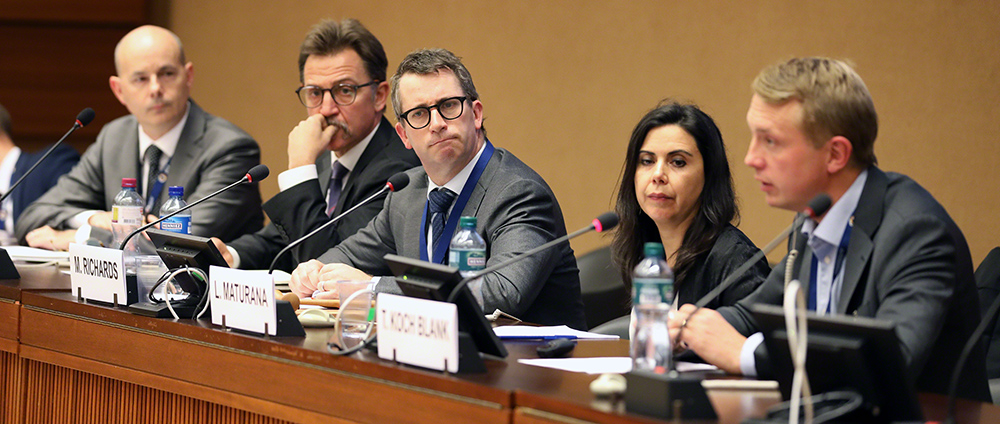
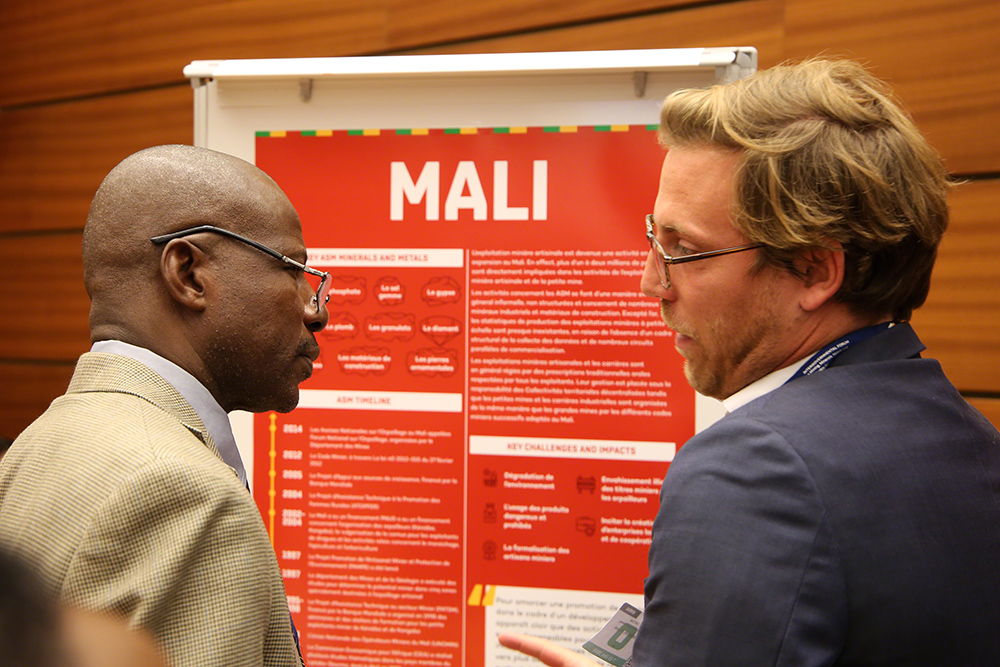
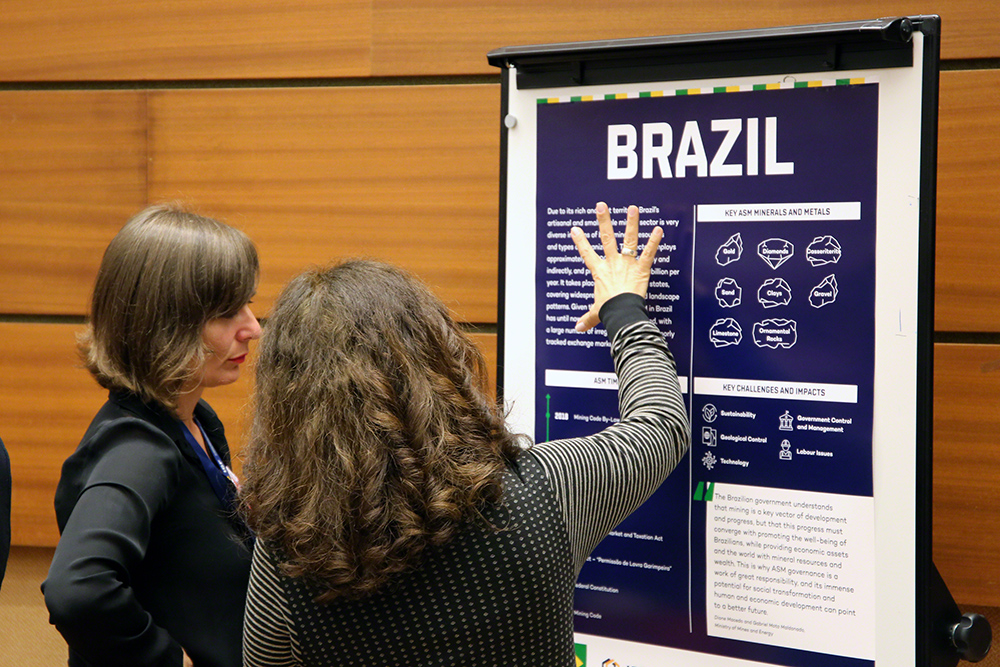
Highlights for Monday, 7 October 2019
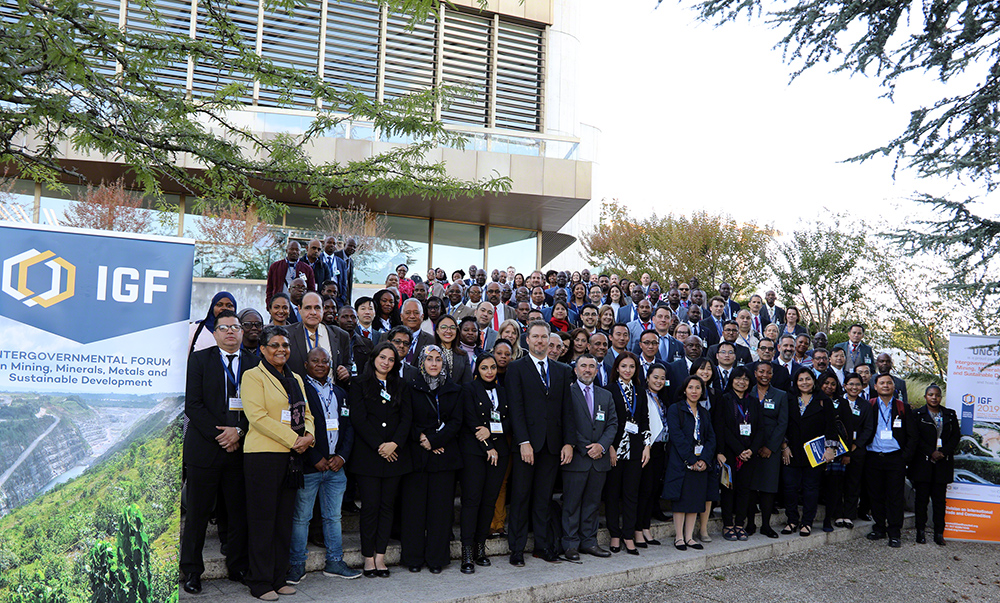
Government delegates to the 15th AGM of the IGF convened in a preparatory workshop on Monday morning, ahead of the AGM opening on Tuesday.
The Secretariat gave delegates an overview of the IGF’s work over the past year, including ongoing support to countries to optimize the financial and socioeconomic benefits of mining, minimize environmental impacts, prepare for post-mining transitions, and manage artisanal and small-scale mining (ASM).
Delegates gave feedback on the draft guidance document for governments on environmental and social impact assessment (ESIA), which is due to be finalized and launched in February 2020.
In the afternoon, delegates took part in an interactive dialogue on climate change, in which they noted the need for both mitigation and adaptation actions. They engaged in ‘world café’ discussions in English, French and Spanish on the topics of base erosion and profit shifting (BEPS), local content, and ASM.
A feature of the workshop was the use of the conference app to promote participation through in-app polls and quizzes. A poll of mining practices showed that for many countries the most challenging stage of the mining cycle is mine closure, and the most challenging issue is that of land rights. Delegates were also "quizzed" on their knowledge of climate change issues, with many answering correctly that the global demand for lithium is expected to increase by 965% by 2050 to meet the global energy transition.
Delegates observed a minute’s silence in memory of Jaff Salima, former Director of Geological Survey, Malawi.
At the close of the day, they posed for a family photo in the grounds of the Palais des Nations, UN Headquarters in Geneva.
+ Visit the web coverage for Monday, 7 October 2019
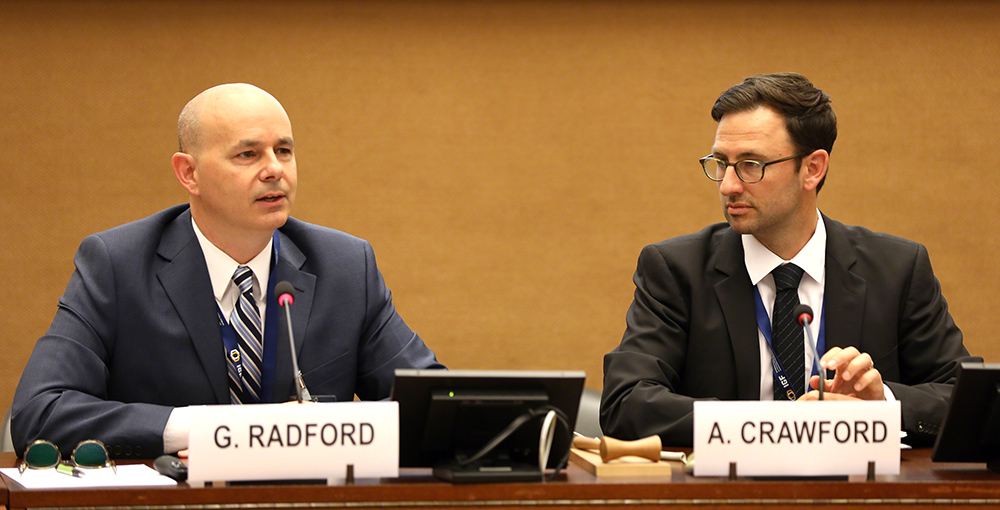
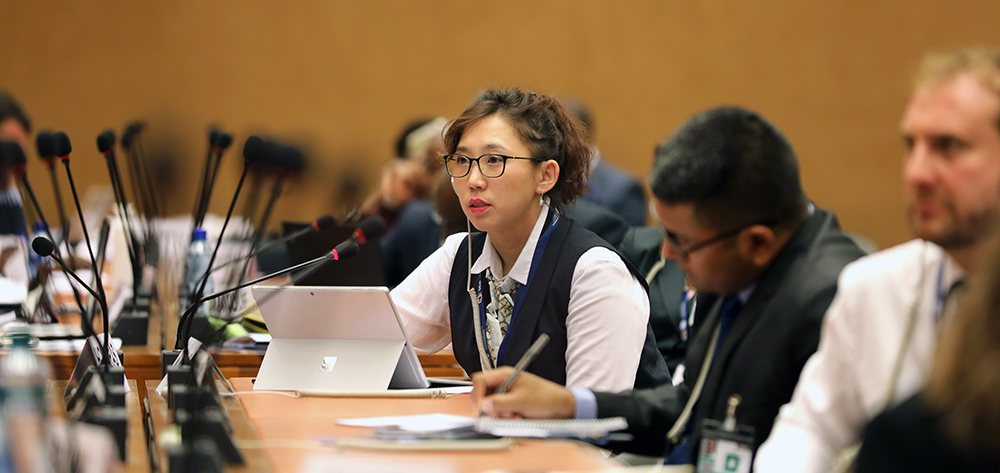
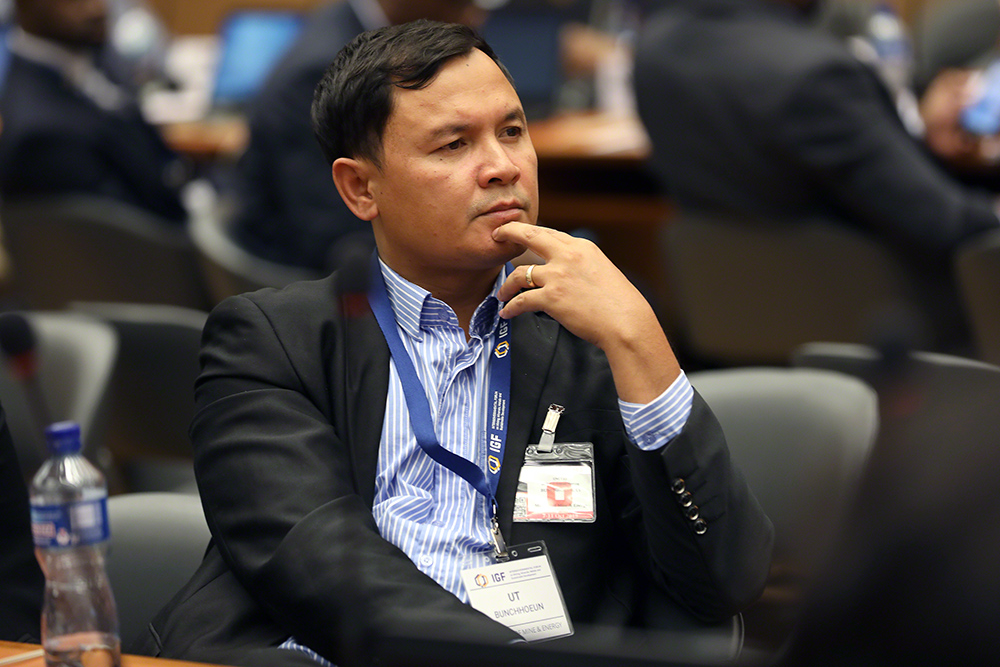
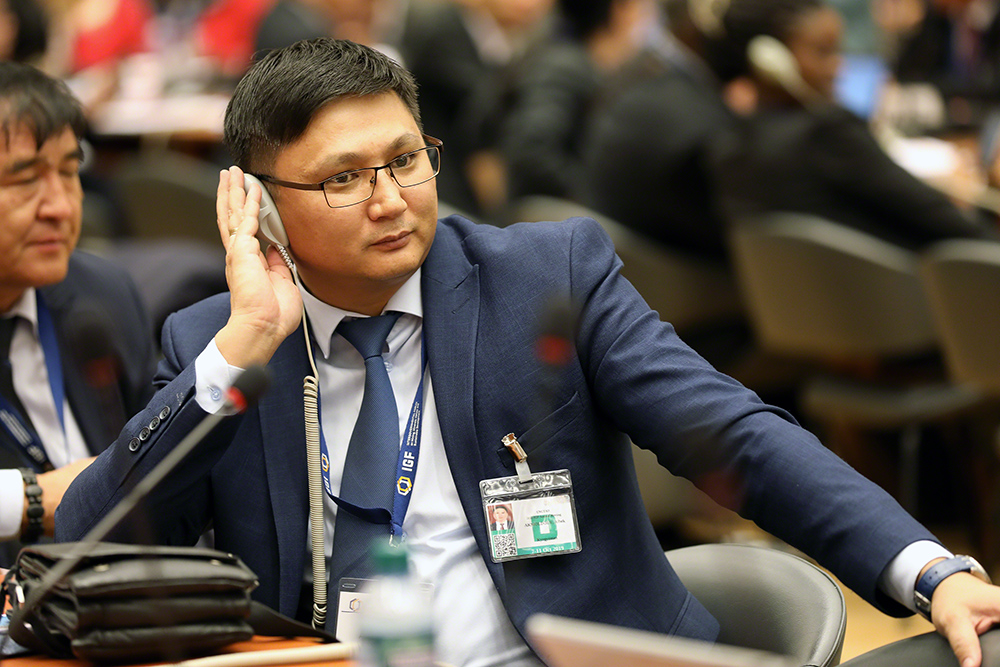
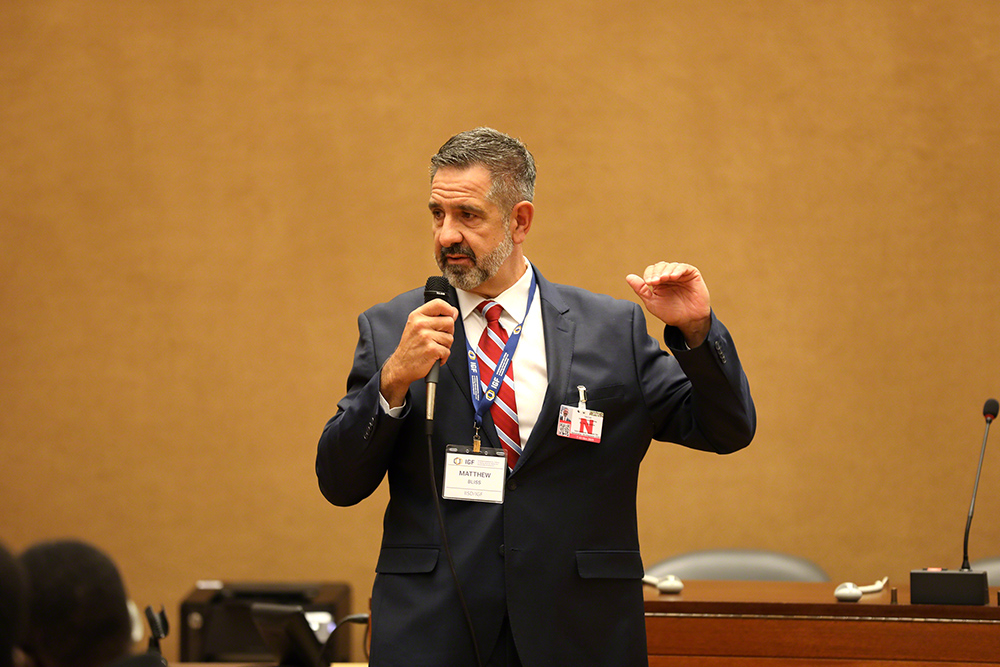
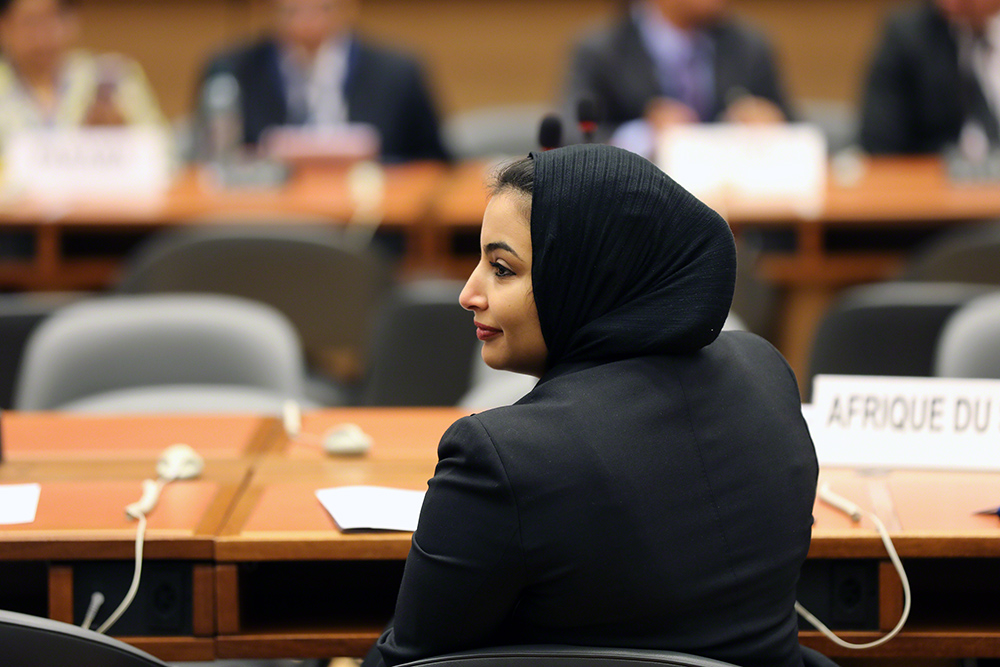
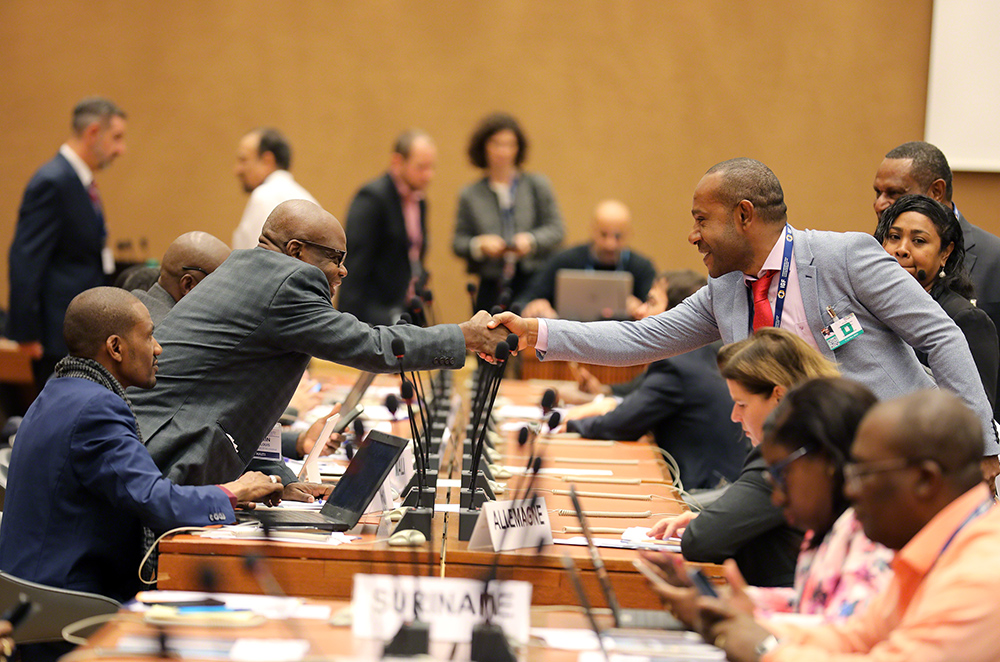
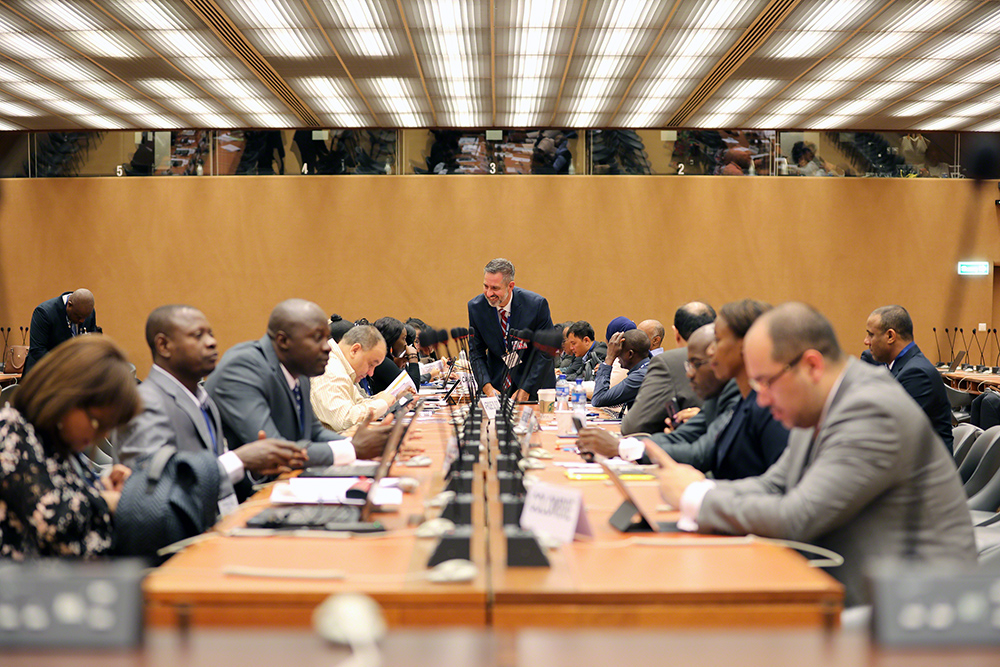
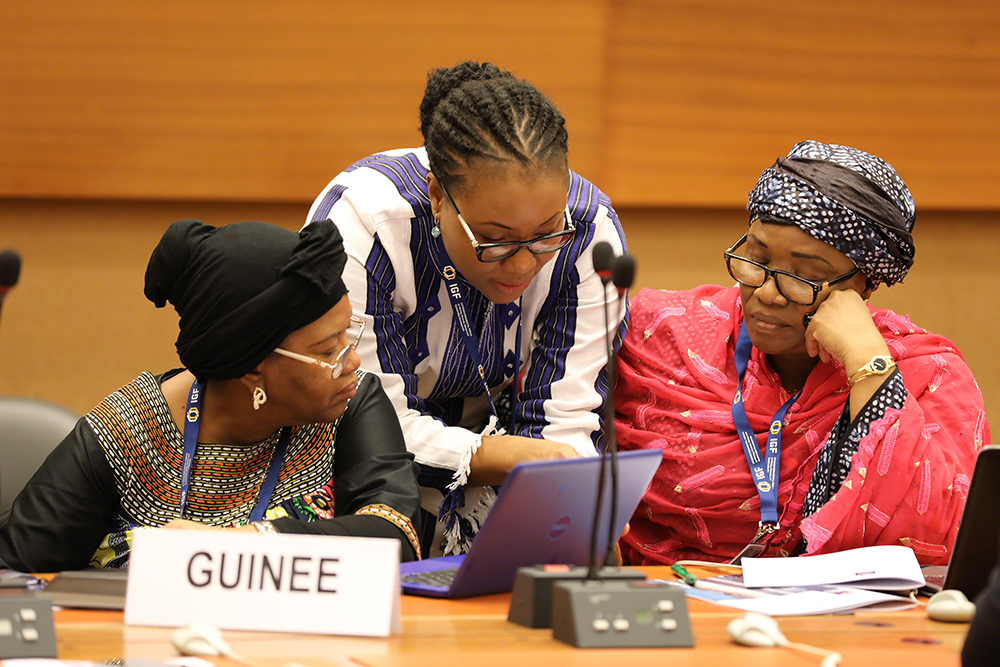
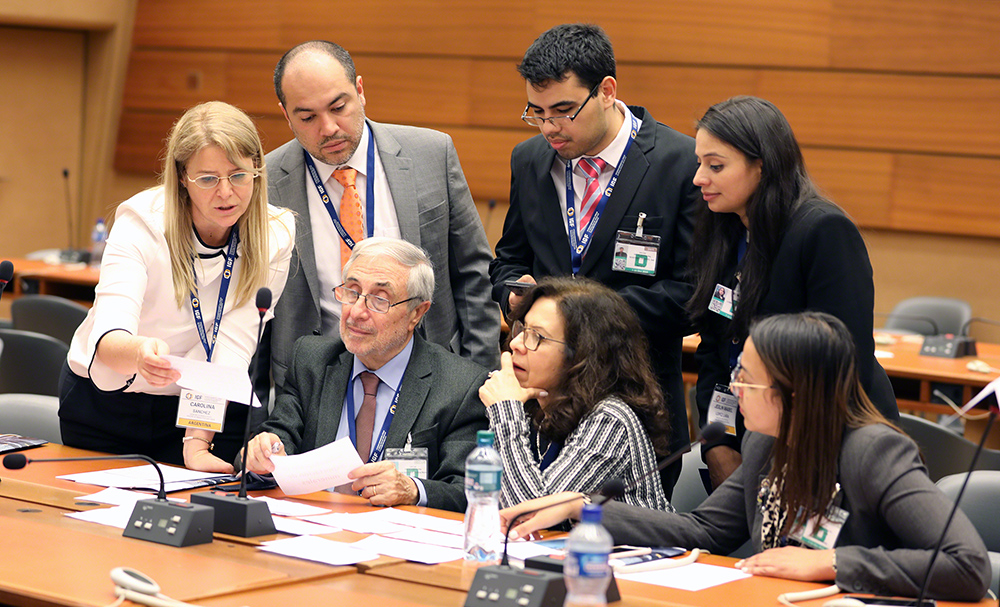
DOWNLOAD ENB+ REPORT
2019 AGM Resources
IISD/ENB+ Meeting Coverage
- 2018 AGM, 15-18 October 2018, Palais des Nations, Geneva, Switzerland
- 2017 AGM, 16-20 October 2017, Palais des Nations, Geneva, Switzerland
- 2016 AGM, 24-28 October 2016, Palais des Nations, Geneva, Switzerland
IISD Resources
- Subscription Page for IISD Reporting Services Peer-to-Peer Mailing Lists (including SDG, CLIMATE-L, OCEANS-L, BIODIVERSITY-L, and Regional Updates)
- SDG Update Newsletter - A compilation of news, commentary and upcoming events published on the SDG Knowledge Hub
- SDG Knowledge Hub - An Online Resource Center for News and Commentary Regarding the Implementation of the United Nations’ 2030 Agenda for Sustainable Development, including all 17 Sustainable Development Goals (SDGs)
- Linkages Update - International Environment and Sustainable Development News
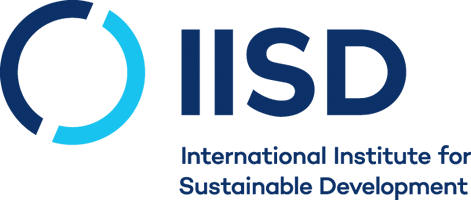 Specific funding for coverage of the 2019 AGM has been provided by IISD
Specific funding for coverage of the 2019 AGM has been provided by IISD